Info
7 Proven Benefits of Moringa for Skin Health
While eating moringa, or drumstick leaves, offers a diverse array of health benefits, the beauty advantages of moringa for skin are equally impressive. Discover why incorporating moringa leaf powder or moringa oil into your skincare regimen can be a game-changer.
To achieve vibrant skin, a healthy diet is essential. Everyone desires healthy, radiant skin, and there’s nothing wrong with that. Instead of relying solely on cosmetics to mask skin concerns, consider nourishing your skin from within by providing it with natural goodness.
Over the years, there has been a shift towards plant-based products for skincare. Moringa has emerged as a highly recommended ingredient for addressing skin impurities and ailments, joining popular plant allies such as turmeric and aloe vera.
The skin benefits of moringa have been widely recognized and appreciated by many. Indeed, moringa products rank among the most exported items from Asian and African countries to various parts of the world.
This green powder, a gift from mother nature, has proven effective for skin, hair, general health, and in addressing mineral deficiencies. Rich in iron and zinc, moringa supports hair health by combating hair loss and promoting growth. Moringa hair packs and face masks are increasingly popular due to their beneficial mineral content.
Related: Benefits of Moringa for Hair
Moringa is often dubbed the “miracle tree” or superfood because all of its parts—leaves, flowers, pods, seeds, and stems—are not only edible but also boast numerous health and beauty benefits. The leaves, flowers, and seeds are utilized both internally and topically for addressing skin allergies and infections.
Let’s delve deeper into the potential skin benefits of moringa, supported by scientific research.
What is Moringa?
Moringa oleifera, commonly known as the drumstick tree, is a drought-resistant tree from the Moringaceae family that grows rapidly. Other common names include horseradish tree and ben oil tree.
In many Asian and African cuisines, moringa leaves are integrated into a variety of dishes. Historically, Romans, Greeks, and Egyptians have utilized moringa for body washes, face cleansers, soaps, and other hygiene products.
In the Indian subcontinent, moringa leaves are featured in an array of recipes, including stir-fries, pickles, savory dishes, soups, and teas.
Every part of the moringa tree is packed with nutrients and minerals, providing extensive health benefits. This remarkable tree serves as a treasure trove of powerful antioxidants, anti-inflammatories, phytonutrients, amino acids, and vitamins, all of which can enhance overall health and wellness.
Beyond skin and hair health, moringa holds potential in treating serious health conditions, including high blood pressure, elevated blood sugar levels, erectile dysfunction, and infertility.
Rich in iron and zinc, moringa contains powerful plant compounds like glucosinolates, known for their high sulfur content, which exhibit anti-cancer properties and assist in treating benign prostate hyperplasia (BPH) in men.
Read also: Benefits of Moringa for Men
How does Moringa Benefit Skin?
Among its many parts, the oil extracted from moringa seeds is particularly beneficial for the skin, protecting against free radical damage and oxidative stress. Moringa oil, also known as ben oil, contains plant compounds including cytokines that promote cell growth and prevent tissue damage. Rich in vitamin C, moringa oil is crucial for collagen production, helping to diminish fine lines and wrinkles.
The healing and nourishing properties of moringa effectively address skin ailments such as sagging skin, acne, blemishes, dark spots, scars, cuts, and bruises.
The high concentration of behenic acid gives the tree its moniker “ben oil tree.” This acid, found in the leaves and seeds, is a key ingredient in anti-aging products. When combined with fatty acids, behenic acid offers deep nourishment and hydration to the skin and hair when applied topically.
7 Proven Benefits of Moringa for Skin Health
Moringa is rich in essential amino acids, fatty acids, minerals, antioxidants, anti-inflammatories, and vitamins. Vitamin A in moringa boosts collagen production, which is vital for skin structure, while vitamin C acts as a potent antioxidant, safeguarding cells from damage. Additionally, vitamin E serves as an anti-inflammatory, reducing both internal and external skin inflammation.
Discover the various skin benefits of moringa below.
Moringa for Aging
Moringa seeds are particularly beneficial for combating aging. The oil extracted from the seeds revitalizes dull and dry skin. Furthermore, the antioxidants present in moringa protect the skin from free radical damage that can lead to premature wrinkles.
Related: Benefits of Moringa Seeds for Skin
Using moringa can delay the early signs of aging. Pollutants and harmful UV rays place significant stress on our skin, promoting free radical damage, which adversely affects DNA cells and cellular membranes, resulting in wrinkles and sagging.
Antioxidants are crucial in combating these negative effects. Moringa boasts a wealth of antioxidants, including vitamins A, B, and C, all of which are powerful in promoting youthful skin and natural radiance.
Dermatologists assert that the antioxidants in moringa effectively counteract free radicals and protect against cellular damage. Additionally, its anti-inflammatory properties alleviate skin inflammation and provide further anti-aging benefits.
Both moringa leaf powder and seed oil are rich in vitamin C, which replenishes damaged skin cells and tissues. A plant compound called cytokinins in moringa boosts cell growth in both skin and hair, helping to prevent sagging skin.
Moreover, antioxidants in moringa shield the skin from damaging UV rays.
Moringa for Acne
Moringa possesses antibacterial properties, making it effective in preventing acne breakouts. It also aids in reducing blemishes, pimples, dark spots, and blackheads.
Due to its ability to penetrate sebaceous glands, moringa can minimize skin breakouts effectively.
Excessive sebum production often leads to clogged pores, trapping dead skin cells and creating an environment conducive to bacterial growth, which causes acne. Moringa helps to control sebum levels and reduce excess oil, thereby preventing breakouts.
Furthermore, the antioxidant properties of moringa address underlying factors that contribute to skin conditions and breakouts, such as oxidative stress, which can result from poor diet, mental stress, environmental pollution, or inadequate sleep.
These factors can disrupt hormonal balance, leading to various skin issues, including redness, acne, psoriasis, eczema, and even hair problems like hair loss and premature graying.
Applying moringa leaf paste mixed with water or moringa oil directly to the affected areas can provide relief from pain and inflammation.
Additionally, consuming moringa powder helps purify the blood and eliminate toxins, which can lead to clearer skin and fewer acne breakouts.
Moringa is also effective in closing large open pores. Its influence on collagen production leads to tighter skin and smaller pores.
Moringa for Skin Complexion
Moringa is known for its ability to reduce blemishes, dark spots, hyperpigmentation, blackheads, and under-eye bags, resulting in a more even skin tone and complexion.
Applying moringa leaf paste to dark spots, acne, or blemishes can significantly minimize their appearance, promoting a clearer complexion.
Moringa Boosts Collagen
Packed with vitamin C, moringa contains seven times more than oranges, which is pivotal for collagen synthesis and cellular growth. Collagen is crucial for maintaining youthful skin and enhances the skin’s natural repair mechanisms.
Besides promoting collagen production, vitamin C stabilizes collagen levels. It plays a vital role in supporting enzymes that reinforce collagen fibers, preventing their degradation due to aging and ensuring the skin remains firm.
A study demonstrated that participants using a face cream containing moringa extract experienced increased collagen formation and enhanced skin elasticity, attributed to the active compounds found in moringa.
Moringa for Oily and Dry Skin
Those with naturally oily or dry skin often find it challenging to achieve a fresh makeup look. The antioxidants in moringa help protect the skin and enhance its repair mechanisms, minimizing the risk of inflammation that can trigger excessive oil production.
The active antioxidants in moringa also help balance hormonal fluctuations by neutralizing oxidative stress, which can lead to inflammation and excessive oil secretion in the skin.
For individuals with dry skin, moringa is rich in vitamin B, a natural humectant that hydrates the skin. Moringa oil penetrates deep into skin tissues, nourishing and moisturizing effectively.
Moringa for Lips
Moringa powder and oil are common ingredients in lip creams and balms, softening and smoothing the lips.
Additionally, the antiseptic properties of moringa effectively treat bacterial infections, skin cuts, bruises, wounds, rashes, insect bites, abrasions, burn marks, and sunburn.
Moringa for Wound Healing
The oil and paste derived from moringa are effective in treating pimples and cuts. Wounds can be breeding grounds for bacterial infections, and if left untreated, even minor cuts can escalate into severe issues. Moringa shows promising potential in facilitating wound healing.
While more extensive human studies are necessary to assess the wound healing properties of moringa thoroughly, available research indicates its benefits.
How to Use Moringa for Skin?
Moringa powder is created by grinding sun-dried moringa leaves into a fine, bright green powder. Moringa oil is usually extracted from seeds via cold pressing or other methods.
To harness the benefits of moringa for skin, you can either ingest the powder or apply its paste or oil to affected areas. Here are several ways to incorporate moringa into your skincare routine, drinks, meals, and supplements.
Skincare Routine
For those interested in using moringa for facial care, consider creating DIY face masks or packs.
Moringa Honey Face Mask
Ingredients
- Moringa powder – 1 tablespoon
- Honey – 1 tablespoon
- Rose water – 1 tablespoon
- Lemon juice – 2 teaspoons
Preparation
- Mix all ingredients into a smooth paste.
- Add water to achieve the desired consistency for the face mask.
- Apply the paste to your face and leave it on for 10 minutes.
- Rinse off with lukewarm water.
- Gently pat your face dry and follow up with a moisturizer to soothe the skin.
For oily skin, consider using witch hazel in place of rose water. You may also omit lemon juice and add your favorite essential oil to the mixture. This face mask is suitable for morning application.
Moringa Avocado Face Mask
Ingredients
- Moringa powder – 1 tablespoon
- Avocado – 1
- Honey – 1 tablespoon
- Lemon juice – 1 teaspoon
Preparation
- Scoop the flesh from the avocado and mash until smooth.
- Combine the mashed avocado with moringa powder, honey, and lemon juice.
- Apply the paste evenly on your face and leave it on for 20 minutes.
- Rinse your face with lukewarm water.
- Gently dry your face with a clean towel.
Caution: As lemon juice may increase sun sensitivity, avoid direct sunlight following mask application, or consider applying this mask in the evening.
Moringa Mask for Blemishes
Ingredients
- Moringa powder – 1 tablespoon
- Banana – Half
- Honey – 1 tablespoon
- Essential oil – 1 teaspoon
Preparation
- Mash half a banana into a paste.
- Combine the mashed banana with moringa powder, honey, and an essential oil such as tea tree oil.
- Apply the paste to blemished areas and leave it on for 20 minutes.
- Rinse with lukewarm water.
Moringa Skin Scrub
Ingredients
- Moringa powder – 1 tablespoon
- Oats – 1 cup
- Sugar – 1 cup
- Coconut oil – Half cup
Preparation
- Grind the oats into a fine powder.
- Combine the oats powder with moringa powder, sugar, and coconut oil.
- Use the mixture as a body and face scrub.
- Rinse the scrubbed area with cold water.
It’s essential to use cold water or ice cubes on the scrubbed areas afterward; scrubs open pores that should be closed immediately after treatment.
Moringa Oil for Massage
Moringa oil can be used for cooking or as an essential oil. When using it for cooking, ensure that it’s cold-pressed oil.
For topical use as an essential oil, it should be combined with a carrier oil, such as coconut or almond oil.
Moringa oil is lightweight and is easily absorbed, making it beneficial for the skin.
Related: Benefits of Moringa Oil for Skin
Ingredients
- Carrier oil – 2 cups
- Moringa oil – 5 to 10 drops
- Beneficial essential oil – 5 to 10 drops
Directions
- Combine all ingredients and apply the oil to your face and body.
- Gently massage into the skin.
- Allow the oil to absorb for a moment, then wipe off any excess with a tissue.
Due to its antioxidant properties, moringa not only benefits your skin but also enhances the shelf life of oils. Store the oil in airtight containers away from light, in a cool place at room temperature.
Moringa in Drinks
You can easily incorporate moringa leaves or powder into smoothies, combining it with your favorite greens like kale or spinach.
Moringa Kale Smoothie for Pre-workout
Ingredients
- Moringa powder – 1 to 2 teaspoons
- Kale – 2 to 4 leaves
- Banana – 1
- Dates – 1 to 2
- Almond butter – 1 tablespoon
- Cacao powder – 1 tablespoon
- Coconut water – Half cup
- Ice cubes – 1 cup
Preparation
- Blend all ingredients in a mixer until smooth.
- Pour into a jar and add ice cubes if desired.
- Enjoy your energizing drink.
For internal cleansing and soothing skin from the inside out, consider sipping on moringa tea.
Moringa tea can be prepared using leaf powder or convenient tea bags, both available from us.
Moringa Tea
Ingredients
- Moringa powder – 1 to 2 teaspoons
- Ginger – A slice
- Cinnamon – 1/2 teaspoon
- Honey – 2 teaspoons
- Water – 1 cup
Preparation
- Boil a cup of water with a slice of ginger.
- Remove from heat and stir in moringa and cinnamon.
- Allow it to steep for 5 minutes, then strain into a cup.
- Add honey to taste and enjoy your tea.
Related: Benefits of Moringa Tea for Skin
If you prefer to use moringa tea bags, steep a single bag for 2 to 3 minutes. Remove and add honey or lemon for flavor.
Moringa in Foods
Moringa can be used in various culinary creations, including stir-fries, soups, and curries.
Moringa Veg Soup
Ingredients
- Moringa leaf powder – 1 tablespoon
- Cumin powder – 1/2 teaspoon
- Pepper powder – 1 teaspoon
- Salt – To taste
- Vegetables – Your choice
Preparation
- Boil the vegetables until softened, then mash them coarsely.
- In a pot, heat 2 cups of water, add the mashed vegetables, spices, and salt, and boil for 10 minutes.
- Turn off the heat and stir in moringa powder.
- Allow to steep for an additional 5 minutes before serving hot.
Moringa Coconut Stir Fry (Indian Style)
Ingredients
- Moringa leaves – 2 cups
- Turmeric powder – 1/2 tablespoon
- Chili powder – 1 tablespoon
- Cumin seeds – 1 teaspoon
- Coconut – 1/2 cup (shredded)
- Shallots – 3 pieces
- Garlic – 2 cloves
- Salt – To taste
- Oil – As needed
Preparation
- Thoroughly wash the moringa leaves.
- Boil the leaves until cooked.
- Meanwhile, coarsely grind the shredded coconut, garlic, and cumin.
- In a pan, heat oil and sauté chopped shallots for one minute.
- Add the boiled moringa leaves, turmeric powder, chili powder, and salt sequentially, stirring well.
- Once the spices are integrated, add the coarsely ground coconut mixture and sauté for an additional two minutes.
- Serve with rice.
Possible Side Effects
Like any herb or medication, moringa should be consumed cautiously and in the proper dosage to avoid potential side effects.
Individuals may experience allergic reactions, so it’s advisable to conduct a patch test before using moringa on your skin. Apply a small amount to a discreet area and wait 24 hours to check for any adverse reactions.
Moringa leaves possess laxative properties, so moderation in consumption is key to avoid gastrointestinal discomfort.
All parts of the moringa tree should be cooked before consumption; eating them raw can lead to digestive issues.
The leaves have a strong flavor that may induce nausea in individuals with lower tolerance levels.
Moringa can stimulate uterine contractions, so it is not recommended for pregnant women.
For breastfeeding mothers, moringa may affect lactation and breast milk composition, hence oral consumption is discouraged.
The Bottom Line
Moringa is a superfood capable of providing essential vitamins and minerals that support overall bodily functions.
The benefits of moringa for skin are noteworthy. It’s effective for addressing blemishes, acne, blackheads, and skin inflammation.
Antioxidants in moringa actively protect cells and mitigate oxidative stress. The plant’s anti-inflammatory properties help address internal and external inflammation by reducing minor irritations or cuts, which could lead to significant skin issues if untreated.
Do not take skin irritations or minor wounds lightly; utilizing natural and accessible remedies like moringa can contribute to skin protection and recovery.
A study indicates that moringa is effective in revitalizing the facial skin. Participants utilizing face creams containing moringa oleifera leaf extract reported enhanced skincare revitalization and anti-aging effects.
Embrace the benefits of moringa for your skin, hair, and health simply by adding a spoonful of powder to your smoothies, soups, or teas.


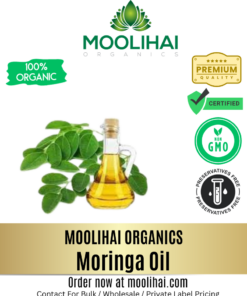
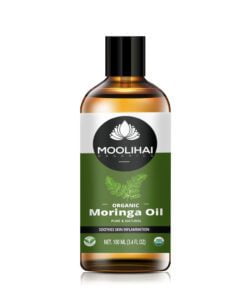
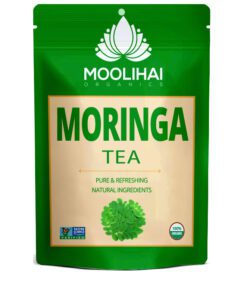
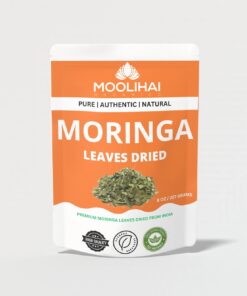

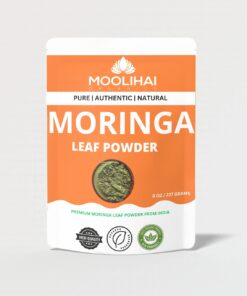
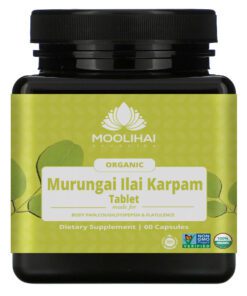
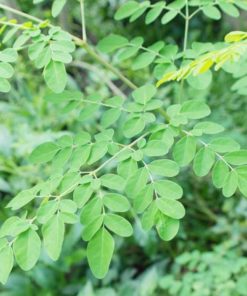
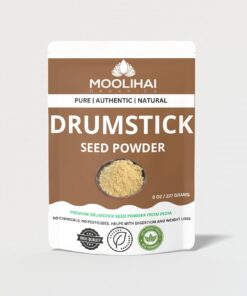

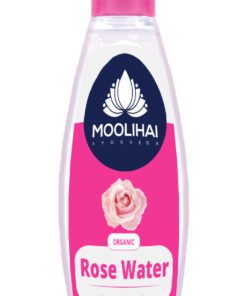
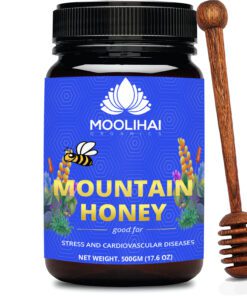

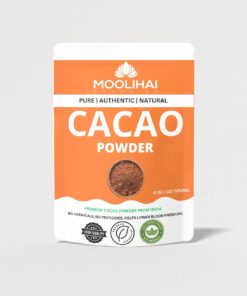
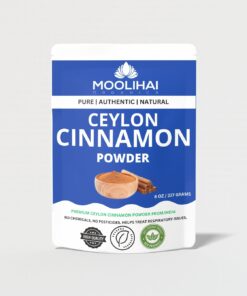
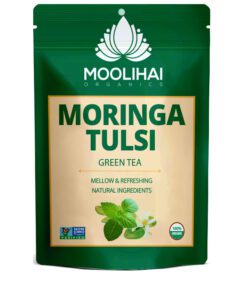
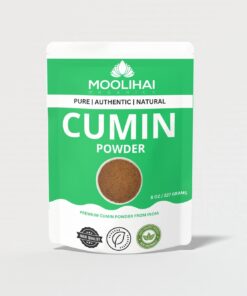
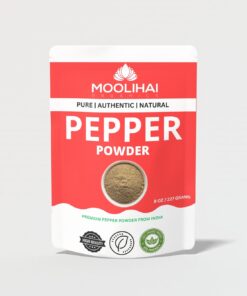
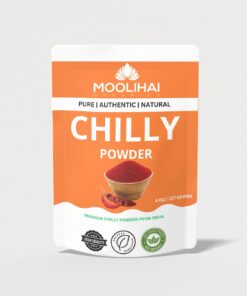
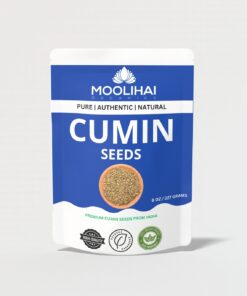
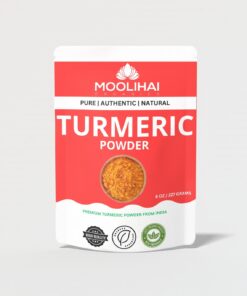
Ponnatharam Stone (Raw) | For Permanent Hair Removal
Vengai Paal | Black Bindi | Dhrishti Pottu | Vengai Pottu for Babies | 100% Natural
Original Edible Camphor | Pacha Karpooram | Bhimseni Camphor
Dried Avaram Senna Flower / Cassia Senna Auriculata / Aavaram Poo / Tarwar / Amaltas Leaves / Senna Auriculata / Avaram Poo / Sanay / Alexandrina / Tanner’s Cassia flower
Natural Dried Moringa Flower – Moringa Oleifera – Drumstick Tree Flower – Murungai Poo – Munagaku Flower
Akasa Garudan Kilangu / Redfruit Creeper / Corallocarpus Epigaeus
Pure Ponnatharam Powder For Hair Removal
Insulin Leaf Powder / Chamaecostus Cuspidatus / Costus Pictus / Spiral Ginger / Insulin Powder / Costus Igneus
Saussurea Obvallata Seeds / Brahmakamal Seeds / Queen of the night / Sacred Saussurea Kon Kapfu / Brahma Kamalam / Nishagandha
Achu Pottu for Babies | Bindi Mould Set | Baby Seratta – 1 Set
Kaunch Beej Powder |Poonaikali | Velvet Bean Powder | Mucuna Pruriens | Kapikacchu | Natural Nervine Tonic & Muscle Builder
Aalam Pazham / Banyan Fruit Powder / Ficus Benghalensis / Marri Palu / Bargad / Dodda Alada Mara / Peraal / Vat Vriksha Powder